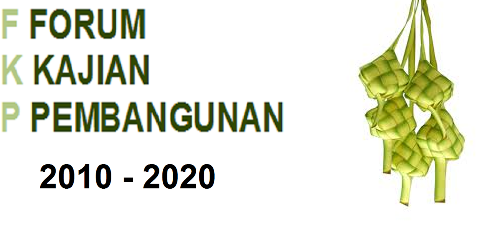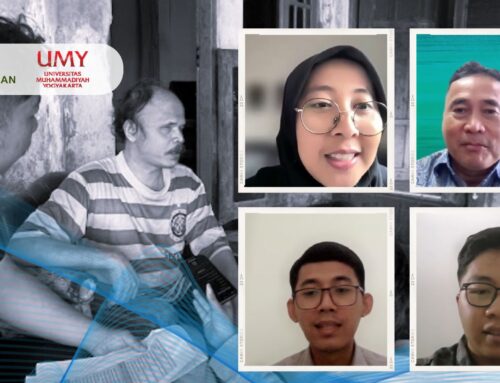 Forum Kajian Pembangunan in May 2020 was hosted by LPEM FEB UI which held 5 webinars. The first webinar was held on 12 May 2020 on the impact of COVID-19 pandemic on the tourism sector in Indonesia. Dr M. Dian Revindo (LPEM FEB UI) presented research that looked at the tourism-related sectors in Indonesia i.e. accommodation, food and beverages, transportation, retail, and other services to assess the impact of the drop in domestic and international tourist visits amid the physical distancing policy. Two scenarios of pandemic were considered: infection curve flattens by 1) early July and 2) by early September. In both scenarios, the tourism-related sectors will hit negative growth. The research team also proposed policy responses in the short term (during the pandemic) and during the recovery period.
Forum Kajian Pembangunan in May 2020 was hosted by LPEM FEB UI which held 5 webinars. The first webinar was held on 12 May 2020 on the impact of COVID-19 pandemic on the tourism sector in Indonesia. Dr M. Dian Revindo (LPEM FEB UI) presented research that looked at the tourism-related sectors in Indonesia i.e. accommodation, food and beverages, transportation, retail, and other services to assess the impact of the drop in domestic and international tourist visits amid the physical distancing policy. Two scenarios of pandemic were considered: infection curve flattens by 1) early July and 2) by early September. In both scenarios, the tourism-related sectors will hit negative growth. The research team also proposed policy responses in the short term (during the pandemic) and during the recovery period.
On 13 May 2020, LPEM hosted a webinar on COVID-19 and Indonesia’s tax policy and tax research. The webinar was free for students but required a fee for the general public. This is the first time that an FKP webinar is not free for everyone and this may be one model for the FKP in the future if research and academic funding for various organisations are re-allocated toward COVID-19 related activities.
Tourism is again the topic for the webinar on 14 May 2020 as researchers presented a study on poverty alleviation and income distribution in Indonesia. In their study, the researchers looked at the expenditure flows from tourism activities in order to trace the impact of tourism on the distribution of income and poverty. To analyse the impacts of these spending, first the researchers employed a panel data regression model to test the impact of tourism on poverty reduction and income distribution using provincial level data from 2013 to 2015. Do regions with economic base in tourism activities tend to have a lower poverty rate and more equitable distribution of income? The results suggest that yes, they have 1.5% to 3.4% lower poverty rates. Further, tourism-based regions tend to have a smaller poverty depth index and, albeit a very small difference, a lower rate of inequality. The researchers presented an economy-wide assessment of the impact, summarised in this post.
Amongst the many problems faced by the fisheries sector in Indonesia are non-optimal revenues from fisheries and insufficient fiscal tools. This is doubly unfortunate since if designed properly, fiscal instruments can be powerful to change behavior towards a more sustainable resource extraction path and contribute to optimal government and fisher revenues. How can fisheries tax promote sustainable fisheries management in Indonesia? Dr Alin Halimatussadiah (LPEM FEB UI) and Dr Satoshi Yamazaki (The University of Tasmania) presented their study of this issue on the FKP webinar on 19 May 2020.
Finally, on 20 May 2020 Dr Jahen Rezki presented part of his PhD research on the relationship between political competition and government policies on economic performance, an under-researched topic in newly democratized and developing countries like Indonesia. Past studies have mostly been done in developed or democratically-mature nations or done using cross-country panel data. Results of past studies have been inconclusive or have non-linear relationship. Political competition may enhance economic growth but may also lead to political instability. How is the relationship between the two in Indonesia? Read more about it in the blog post.
The Organising Committee of FKP chaired by Dr Maxensius Sambodo (LIPI) wishes everyone Selamat Idul Fitri, 1 Syawal 1441 H!




